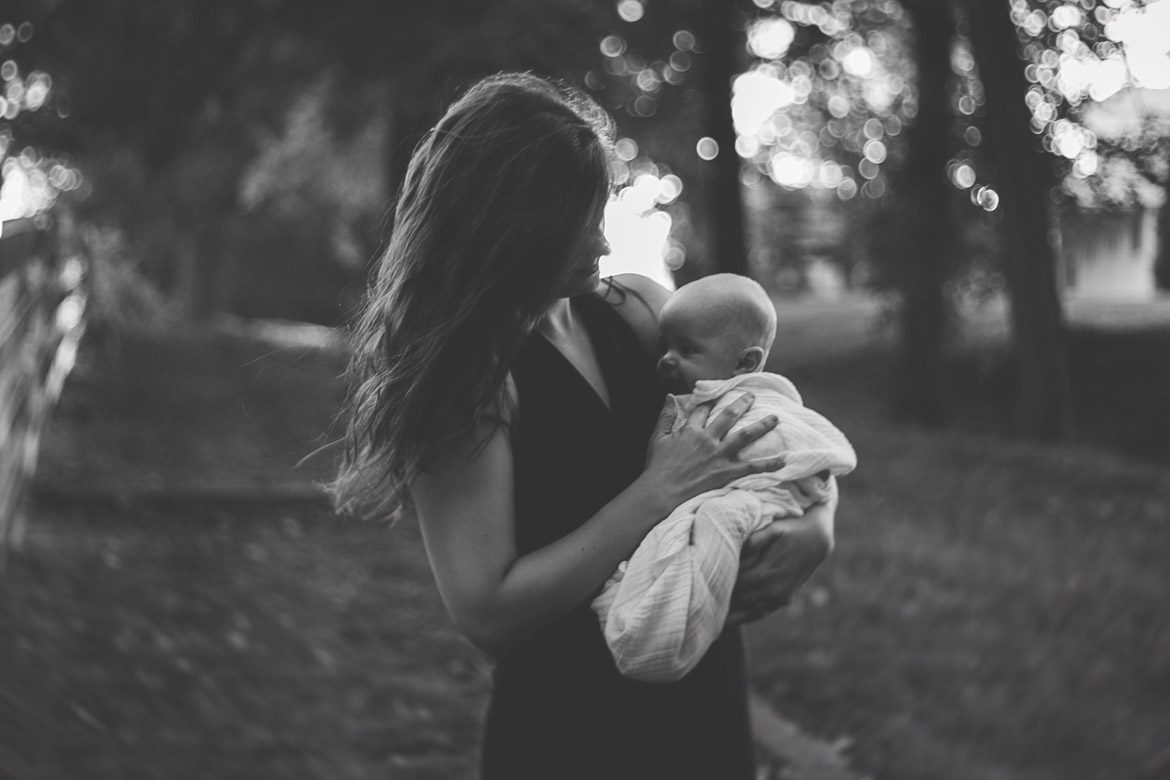By Robin Grille
Post Natal Depression (PND) affects at least one in ten mothers around the world. While this painful and debilitating condition afflicts mothers – within four weeks of giving birth – it is also stressful for family relationships and detrimental to mother-infant bonding.
These days it is popular to explain PND as feminine hormones gone awry – though the evidence for this is poor. We have a variety of pharmaceuticals at our disposal – and of course, they can be helpful. But our over-reliance on the hormonal, ‘sickness’ model has a serious pitfall. If all we do is rely on allopathic approaches we risk overlooking some of the very real situational factors that cause depression. I believe we may be seriously downplaying the importance of mothers’ emotional needs, discounting the things that wound them; and disregarding critical steps to restoring their wellbeing.
If PND was biologically determined, you would expect it to appear in every culture. It doesn’t. Among the Kipsigis of Kenya, for instance, PND is unheard of. Why? What do they do differently for mothers? Are we, in our culture, doing enough to recognise the circumstances that trigger PND? Do we do enough to protect mothers from these difficulties and help them to overcome them?
Genetic predispositions to PND are only a small part of the picture, and genetic vulnerability by itself is not enough to trigger this disorder. When a mother develops PND, something very real is hurting her – though often she cannot put her finger on what it is. Modern research, however, has shone a light on this subject.
Triggers From The Present
Every mother has been biologically programmed to expect an increase in emotional support when her baby arrives; she needs to be held, to feel secure and listened to by her partner, girlfriends and her own mother or kin. During gestation, childbirth and the months that follow, mothers are emotionally fragile, and they require extra understanding. This is normal.
Fathers are vital protectors of their family’s emotional welfare, and their lack of emotional support can be costly. Some women who suffer from PND report that their partners are either unsupportive, or overly controlling. But even the most supportive partners may be insufficient, and in fact, both parents need the unflagging support of extended family, friends and community.
As at every other stage of mothering, a raft of emotional support for the mother is extremely important during labour. The sensitive support of a companion has such profound effects: it actually reduces medical complications quite significantly. Mothers who are accompanied by a female supporter – as well as their male partner – have a shorter labour, less incidence of caesarean section, and their babies are less likely to require neonatal intensive care.
Mothers who are accompanied by a female supporter – as well as their male partner – have a shorter labour, less incidence of caesarean section, and their babies are less likely to require neonatal intensive care.
Some of the emotional volatility experienced by new mothers might in fact be normal and healthy. Like the proverbial ‘mother-bear’, it is natural for some mothers to become more reactive than usual. This temporary surge of protective instincts is called ‘Lactation Aggression’. Because they are not reassured that there are valid reasons for these feelings, mothers feel ashamed and guilty. To top it off, they feel afraid of their own irritability, afraid of what it might do to their baby, and too embarrassed to seek the relief that comes with talking about their feelings.
It is not uncommon for mothers to feel burdened, and resentful; even to experience bursts of outright hostility towards their babies. It is unrealistic and unfair to expect all new mothers to feel nothing but radiant joy. The change of life brought about by a new baby can come as a formidable shock that few are helped to prepare for. With a precious new infant, we each forfeit much of our freedom, our personal space, our time to be alone with ourselves and with our partners. Some mothers feel that their status has gone; they are no longer important and worthy. If they have put a career on hold, they experience a frightening loss of identity. A kind of grieving process is called for, if one is to manage to gracefully let go of life as it was before baby. Because she had not anticipated any negative feelings, and she had expected to feel elated and in love with her new baby, the mother becomes disappointed with herself. She feels like a failure, and this compounds her depression. That is why every mother needs the ongoing empathic support of family, girlfriends who listen intently, who have travelled this territory and can mentor her through it. She needs friends who can hold her, share their own experiences with her, and reassure her that her emotional ups and downs are OK.
It is unrealistic and unfair to expect all new mothers to feel nothing but radiant joy. The change of life brought about by a new baby can come as a formidable shock that few are helped to prepare for.
When a mother feels sad and cries, this does not necessarily indicate depression. Crying is the body’s natural way to release emotional pain. When mothers cry, instead of being told they are mentally ill, they should be listened to, loved and held.
Read more on Page 2…











